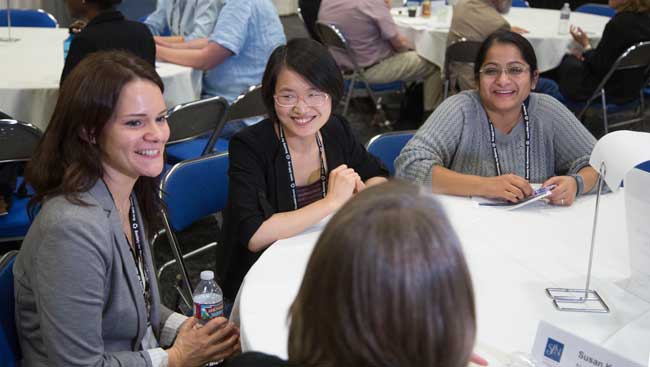Your Science Avengers: How to Assemble Your Mentoring Team
- Featured in:
- Best Practices for Mentoring Relationships

When it comes to growing in your career, building a diverse team of mentors, instead of having just one, can be valuable. Having a mentoring team wasn’t something that I realized would be beneficial until I began working on my NIH K award application.
As I went through that process, a grant reviewer asked me to seek out people who could counsel me on different parts of the job search: a junior faculty who successfully went through a job search the year before, a more established researcher, and a senior scientist who served on multiple job search committees.
Think of the Avengers. They are excellent individual fighters, but together, they are a formidable team when they combine their unique skills and traits. As you’re going through an important time in your career, a group of advisers with distinctive expertise will be more helpful than one adviser.
Even the most supportive mentors have weaknesses and blind spots. Building a diverse team of mentors can give you the support and advice you’ll need as you face career transitions, and it will narrow the focus of each mentor.
Consider these questions to help you build an effective team.
Who do you want on your Science Avengers team?
Your group of mentors may change depending on your individual needs and where you are in your career. In general, look for people who:
- Encourage you to explore innovative ideas.
- Make you double check each step in your reasoning.
- Remind you everything will be all right when you experience frustration or failure.
- Know how to tell a story and place it in the right journal.
- Navigate departmental politics well.
- Have the experience necessary to advise you on grant strategy.
- Hold knowledge about and access to the newest technologies.
- Use their influence to make things happen.
How do you get there?
Look for opportunities where you are right now and build mentoring relationships as you go along.
- Start when you’re a student with your thesis committee members and other faculty at your institution.
- Rely on postdocs in the lab who will be one step ahead of you as you progress through your career.
- Use tools that SfN and other professional societies provide to find neuroscientists in your discipline.
- Look for jobs at institutions that offer official mentoring programs for postdocs and junior faculty.
- Create small “mentoring moments” for yourself by asking for advice at a conference and beginning to build a relationship.
- Remember that as your peers splinter off to different institutions and careers, you have potential mentors or advisers even among this group.
Finally, don’t be shy. So many scientists in academia chose this job because they see it as their mission to mentor younger generations. All you have to do is ask.









